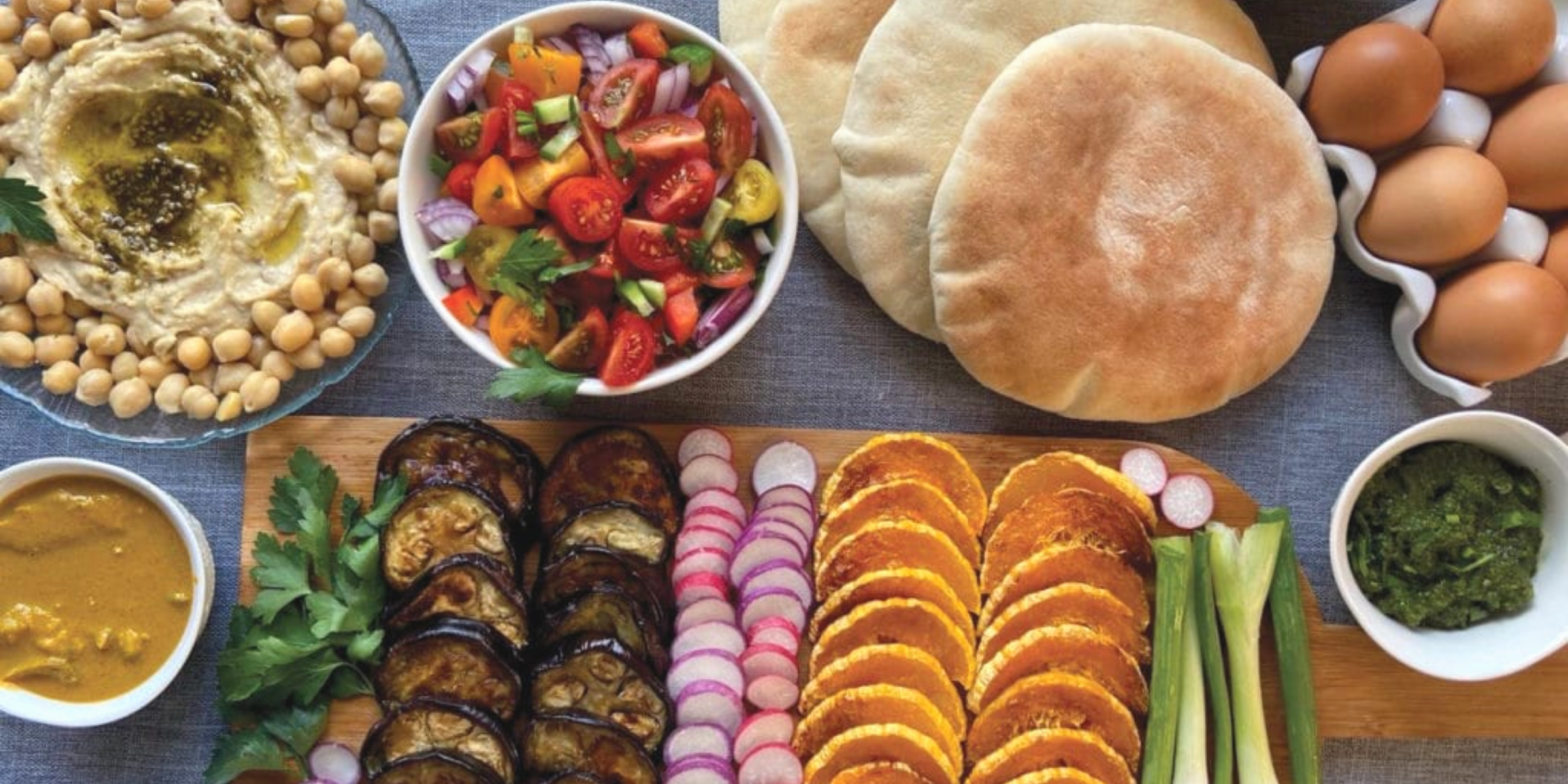
Two months after I started to date my future husband, I asked him, “Am I more Israeli, Australian or American?”
His answer surprised me. “You’re more Iraqi.”
My parents were born in Iraq but they met and married in Israel, where my older brother, Rafi, and I were born. My mother’s family moved to Australia in 1967, and my family followed, landing there on my second birthday in 1968.
By the age of 5, I was putting in solid hours as my grandmother’s sous chef in her kitchen in Rose Bay, a suburb of Sydney. While I spoke Hebrew with my father and English with my mother, I spoke a Judeo-Iraqi-Arabic dialect with my Nana Aziza, and I was the official interpreter on our shopping expeditions to Bondi Junction.
When I was 7, my family and I visited Israel for the wedding of my father’s youngest brother. We were in the kitchen at my uncle’s apartment in Petah Tikva and, unbeknownst to me, I was naming the fruits and vegetables in Arabic, prompting hysterical laughter from the Baghdadi-born wives of two of my uncles. I quickly learned that ba’ban jan was cha’tzil (eggplant) and ka’ra was d’la’at (pumpkin or squash) and prat’kal was tapuz (orange).
Every Friday morning, my grandmother would peel, slice and brine the purple ba’ban jan and put it in the sun to drain and then fry it. She would peel the bright orange ka’ra and fry it to golden brown perfection. She would make her t’bit, the Iraqi chicken and rice version of cholent and place the eggs on top, ready to roast overnight in the oven. She would boil potatoes in their skins and carefully wash tons of Italian parsley and romaine lettuce. She would grate juzur (carrots) and add sweet, juicy segments of prat’kal and snowy flakes of coconut.
Friday night dinners were bright and fancy affairs, with lots of spirited singing and many honored guests, with the finest English bone china table settings and the most exquisite foods. Shabbat day was relaxed.
When the weather was warm, my grandparents, parents, aunts and uncles would dine al fresco. The table was laden with fare for the perfect Iraqi breakfast. Velvety brown bethi mel Shabbath, eggs that have cooked overnight, also known in Ladino as huevos haminados (cholent eggs). Fried eggplant and butternut squash and boiled potatoes, perfectly sliced with a heavy sprinkle of black pepper. Z’lata (salad) of bright red tomatoes and green parsley was perfectly flecked with purple onion. The array of homemade condiments included pungent amba, with its tangy notes of vinegar, turmeric, chile and fenugreek; spicy green s’chug; and turshi, vegetables pickled in a curry, turmeric brine. Not to mention hummus, tehina, fij’il (radishes) and bas’l akhdar (green scallions).
Legend has it that in the early 1960s, an Iraqi man named Sabich had a little stand near the bus depot in Ramat Gan, Israel, and that the bus drivers ending their shift asked him to sell ready-made food. He came up with the idea of combining all of the ingredients of this Iraqi breakfast in laffa, the delightfully pillowy sheets of Iraqi flatbread. Along with falafel, Sabich is one of the most popular street foods in Israel.
Our family still eats this meal every Shabbat and even if my mother is hosting, I make the eggplant and butternut squash. I think of my grandmother and how much patience she had to stand and fry everything. I pray that she forgives me for being lazy — I roast my veggies in the oven. I make my own turshi, but luckily amba is readily available at the kosher market. My lovely Aunt Tina taught me a great hack for baking the Shabbat eggs by wrapping the cardboard container with a double layer of foil. Fresh bread is key and there is none better than the soft, flavorful pita from Bibi’s Bakery Cafe on West Pico Boulevard.
Good thing my husband knew what he was getting into when he married an Iraqi woman.
SABICH
Eggs:
1 dozen eggs in cardboard container
-
Preheat oven to 350 F.
-
Double wrap container of eggs in foil.
-
Bake 1 hour, then reduce heat to 225 and bake at least 4 hours or overnight.
Butternut squash:
1 medium butternut squash, peeled, seeded and sliced in half moons
4 tablespoons olive oil
1/2 teaspoon salt
1/2 teaspoon sugar
-
Preheat oven to 400 F.
-
Place squash slices on baking sheet. Coat with oil and dust with salt and sugar.
-
Bake 15- 20 minutes until golden.
Eggplant:
4 eggplants, washed and dried
Kosher salt
8 tablespoons avocado oil or almond oil
Granulated garlic powder
Slice eggplant in 1/4-inch thick rounds.
-
Place tiny pinch of salt on each piece of eggplant.
-
Drain in colander at least 1 hour.
-
Preheat oven to 400.
-
Grease baking sheet with oil, then place eggplant slices in one layer, making sure not to overlap.
-
Sprinkle with garlic powder, then drizzle with a little more oil.
-
Bake 15-20 minutes till golden brown.
ISRAELI SALAD
1 pint (10 ounces) heirloom cherry tomatoes, halved
2 Roma tomatoes, diced
3 Persian cucumbers, diced
1 red pepper, seeded and diced
1 purple onion, finely chopped
1 bunch Italian parsley, finely chopped
2 lemons, juiced
4 tablespoons olive oil
-
Kosher salt and pepper to taste
-
Combine first six ingredients in serving bowl.
-
Dress with lemon, olive oil, salt and pepper 10-15 minutes before serving.
Serves 12.

